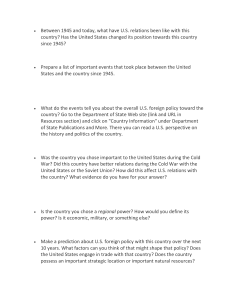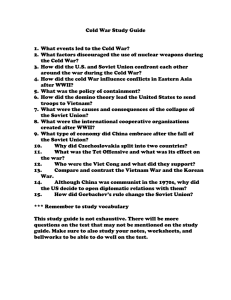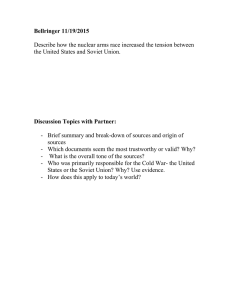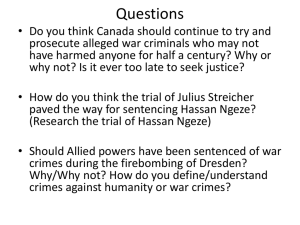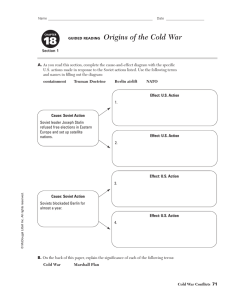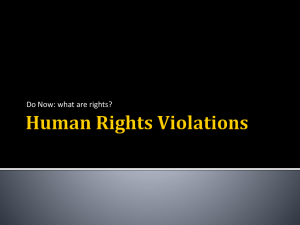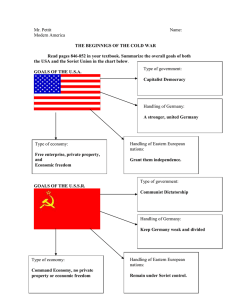Chapter 23: Capitalism and Culture: A New Phase of Global... 1. Which of the following statements best describes the global... between the first and second world wars?
advertisement
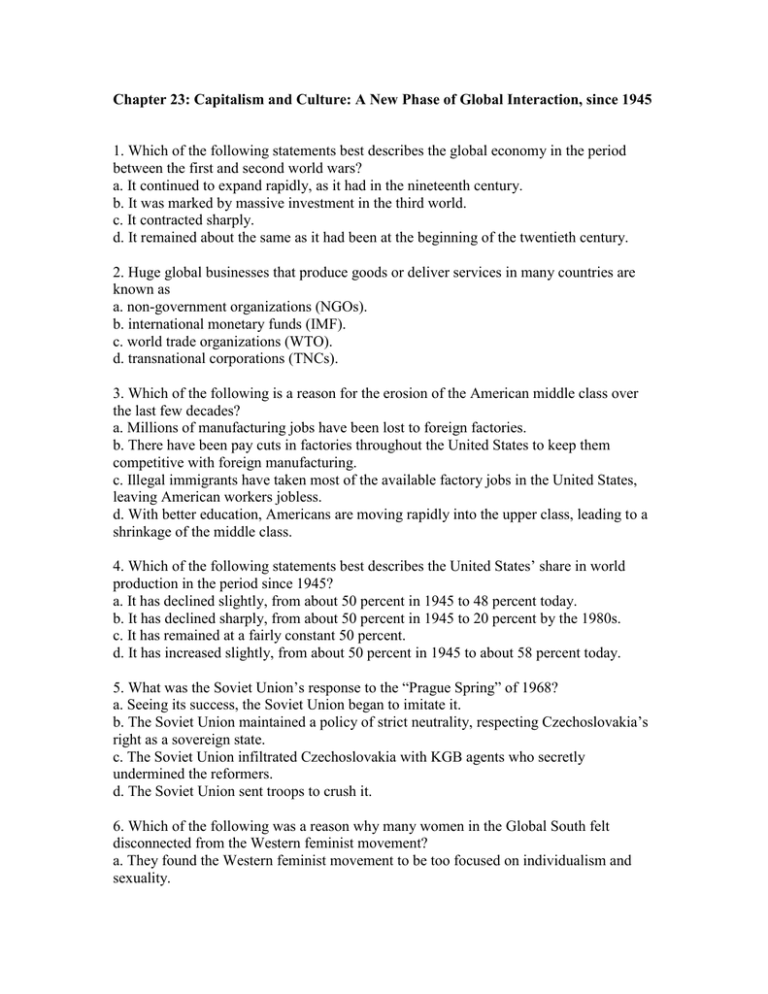
Chapter 23: Capitalism and Culture: A New Phase of Global Interaction, since 1945 1. Which of the following statements best describes the global economy in the period between the first and second world wars? a. It continued to expand rapidly, as it had in the nineteenth century. b. It was marked by massive investment in the third world. c. It contracted sharply. d. It remained about the same as it had been at the beginning of the twentieth century. 2. Huge global businesses that produce goods or deliver services in many countries are known as a. non-government organizations (NGOs). b. international monetary funds (IMF). c. world trade organizations (WTO). d. transnational corporations (TNCs). 3. Which of the following is a reason for the erosion of the American middle class over the last few decades? a. Millions of manufacturing jobs have been lost to foreign factories. b. There have been pay cuts in factories throughout the United States to keep them competitive with foreign manufacturing. c. Illegal immigrants have taken most of the available factory jobs in the United States, leaving American workers jobless. d. With better education, Americans are moving rapidly into the upper class, leading to a shrinkage of the middle class. 4. Which of the following statements best describes the United States’ share in world production in the period since 1945? a. It has declined slightly, from about 50 percent in 1945 to 48 percent today. b. It has declined sharply, from about 50 percent in 1945 to 20 percent by the 1980s. c. It has remained at a fairly constant 50 percent. d. It has increased slightly, from about 50 percent in 1945 to about 58 percent today. 5. What was the Soviet Union’s response to the “Prague Spring” of 1968? a. Seeing its success, the Soviet Union began to imitate it. b. The Soviet Union maintained a policy of strict neutrality, respecting Czechoslovakia’s right as a sovereign state. c. The Soviet Union infiltrated Czechoslovakia with KGB agents who secretly undermined the reformers. d. The Soviet Union sent troops to crush it. 6. Which of the following was a reason why many women in the Global South felt disconnected from the Western feminist movement? a. They found the Western feminist movement to be too focused on individualism and sexuality. b. Western feminists were too concerned about their own struggles to care about women in the Global South. c. Women in the Global South had no political position, so they could not engage in a feminist movement. d. Women in the Global South were on the whole content with their positions in society and saw no need for feminism. 7. In which of the following countries did a major fundamentalist nationalist movement develop in the 1980s? a. India b. Turkey c. China d. Great Britain 8. In which of the following states did an Islamic movement come to power and implement sharia as the basis of law? a. Algeria b. Egypt c. Iraq d. Afghanistan 9. In what way has mainstream Christianity responded to the effects of globalization? a. By splintering into ever-smaller subgroups b. By losing touch with its moral center c. By addressing the moral and ethical problems of social justice, human rights, and the suffering of the poor throughout the world d. By pulling into a defensive, insular shell 10. Which best characterizes the strategies that Islamic fundamentalist groups pursued to achieve their political aims? a. Most attempted to gain power through elections and by placing members in influential government and social positions, but some sought violent revolutions. b. A few attempted to gain power through elections, but most were intent on violent revolutions. c. They focused only on attacking non-Muslims. d. They focused only on launching attacks outside the Islamic world. Answer Key 1. c 2. d 3. a 4. b 5. d 6. a 7. a 8. d 9. c 10. a
